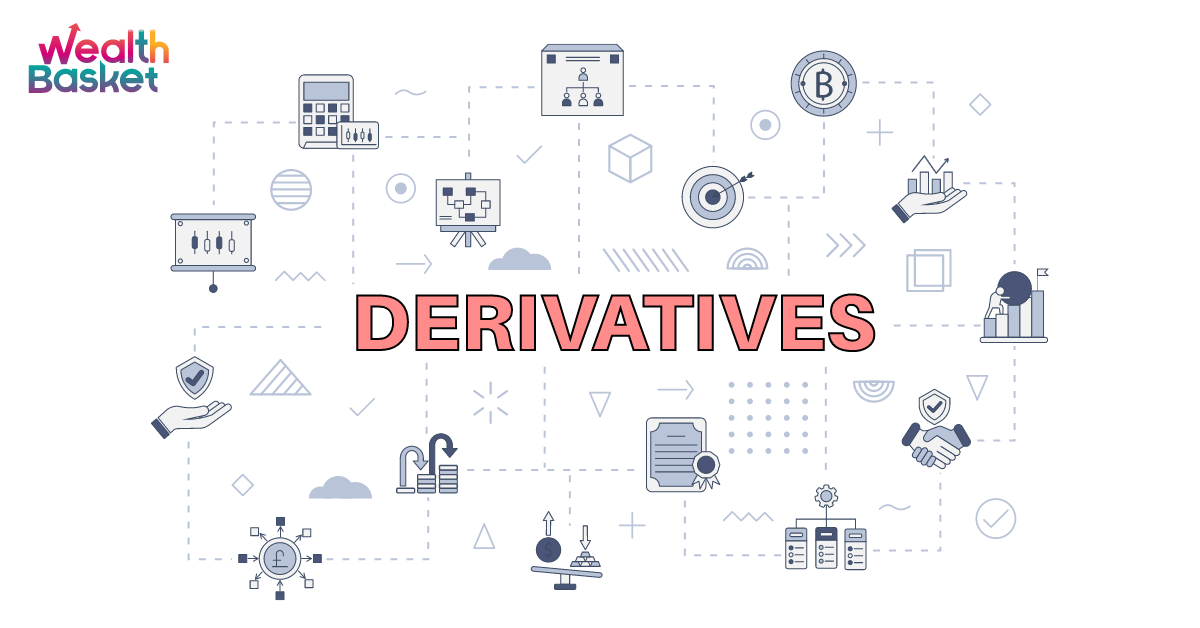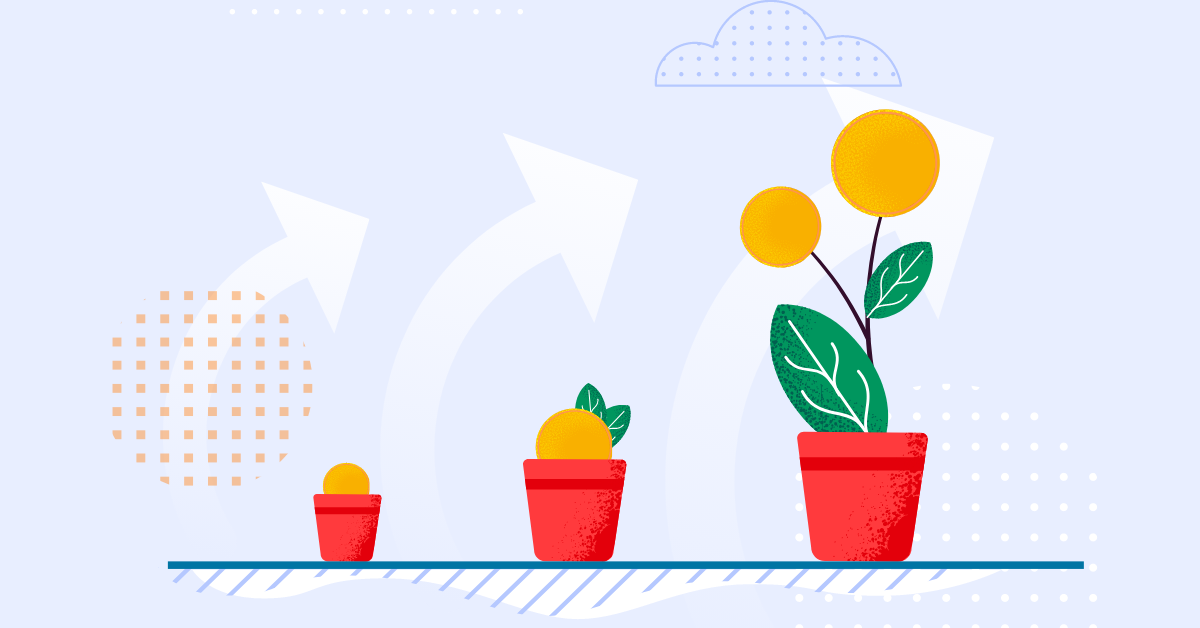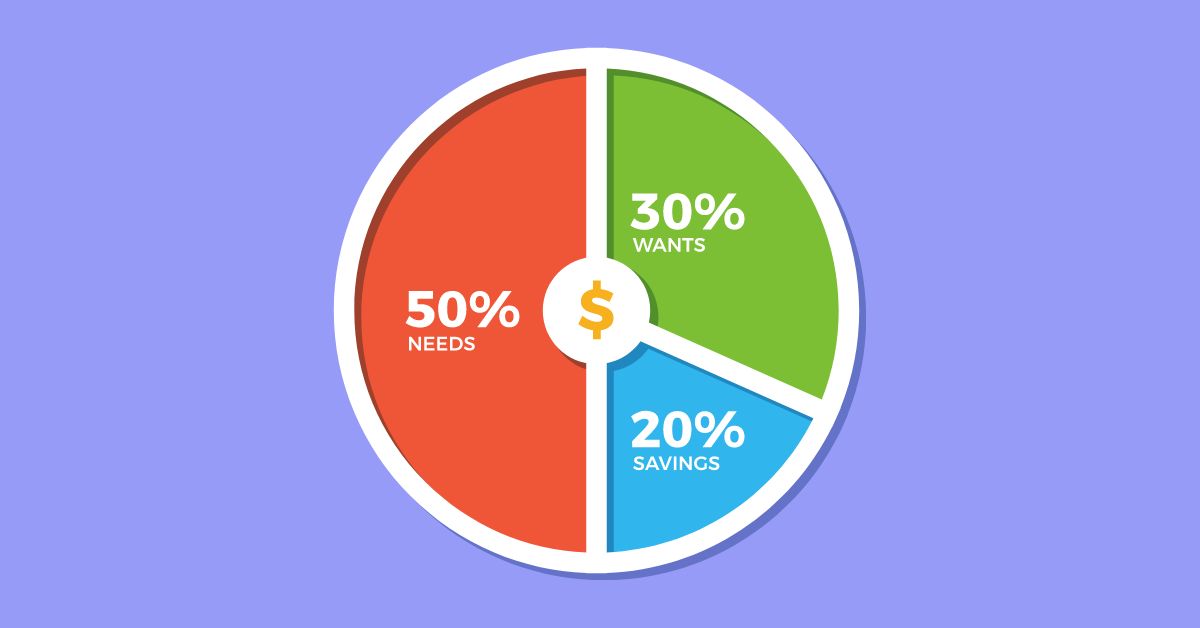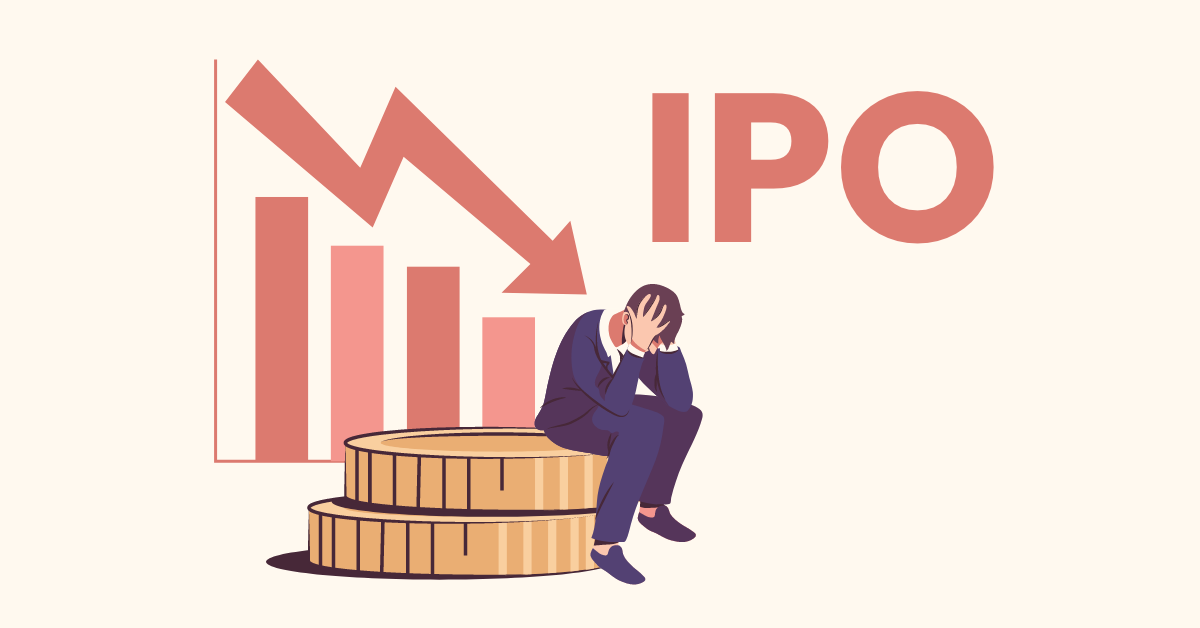
Have you ever encountered a situation where you liked something while shopping but couldn’t purchase it because you lacked the necessary funds? Let’s say it’s month end, and you’ve set your sights on buying it once your salary is credited. How would you handle this particular circumstance?
You can make a deal with the seller to purchase the item at the current price next week, irrespective of whether its price may increase or decrease or whether the seller still has the item in stock. This is a simple example of a derivative contract. Financial derivatives work in a similar way, but with financial assets like stocks, bonds, and commodities.
In this blog, we’ll walk you through what financial derivatives are, how derivative markets operate, who are the leading players in this arena, the different types of financial derivatives, and why investors are drawn towards them.
What are Financial Derivatives?
In the financial world, derivatives are contracts whose value is tied or “derived” from the price of an underlying asset. These assets can be stocks, bonds, commodities, currencies, etc. Traders use derivatives to hedge against potential price changes and save themselves from losses, or bet on an asset’s future price.
For example, suppose you believe that the stock of a company will increase. You can buy a futures or options derivative contract of the company and place a calculated bet to take advantage of the anticipated price movement.
How Do Derivative Markets Work?
To deal in derivatives, just like in the stock market, you need a trading account with any registered broker who can give access to the financial derivatives markets.
There are two main ways to trade derivatives: through Exchanges or Over the Counter (OTC).
Let us understand them one by one.
Exchange-Traded Derivatives (ETD):
These are the derivatives contracts that take place on a registered stock or commodity exchange through a broker. Think of an exchange as an online marketplace – it’s safe, standardized, and regulated.
Futures and options are examples of exchange-traded derivatives. In India, NSE is the largest exchange where financial derivatives trade in the form of futures and options for stock and benchmark indices like Nifty and Banknifty. While MCX (Multi Commodity Exchange) is the largest commodity exchange in India where commodity derivatives are traded.
Over the Counter (OTC) Derivatives:
These contracts occur directly between two parties, like a private deal. Forwards and swaps are the financial derivatives that fall into this category. These contracts are more flexible and can be customized to suit the parties involved.
Who Takes Part in Derivative Trading?
Just as you find different people in a market – bargain hunters, risk-takers, or those who buy in bulk and sell elsewhere for a profit – you find similar players in the derivatives market.
Below are the types of participants who take part in the financial derivative markets.
Hedgers
They are the careful ones, who use derivatives to protect their investments from sudden price changes. Think of them as individuals buying insurance for their assets.
Speculators
They are the risk-takers, who aim to make profits by predicting future price movements of any asset class for which derivative products are available. They’re like gamblers placing bets on a future outcome.
Arbitrageurs
They make money from the price difference of the same asset in different markets. They buy low in one market and sell high in another. For example, they will buy a stock for ₹100 from NSE and sell it on BSE for ₹101; this can be considered an arbitrage trade.
Margin Traders
They are traders who use borrowed money from a broker to trade, maintaining a significant position with a smaller amount of their own money.
Types of Financial Derivatives
There are several types of derivatives, each serving a different purpose:
Futures
A futures contract is a financial agreement to buy or sell something at a future date at a predetermined price. It helps manage risk and establish predictability in volatile markets.
For better clarity, let’s understand this with an example. A wheat farmer can enter into a futures contract with a bakery to sell 50 kgs of wheat at a fixed price of ₹1,000 in six months. This way, regardless of the market price fluctuations, the farmer has ensured a set selling price, and the bakery knows the buying price. Thus, futures contracts provide a safety net against market unpredictability.
Options
An options contract gives the holder the right, but not the obligation, to buy or sell an asset at a specific price. You consider an option contract as insurance against an unlikely event. If the event happens, the insurance company pays you for the damages, or the insurance company can keep the premiums collected from you for itself.
There are two types of option contracts.
- PUT option: This option contract is generally bought when you think that the stock or other financial product will decrease in value over the period. It protects you against downside risk.
- CALL option: This option contract is generally bought when you think that the stock or other financial product will increase in value over the period.
Forwards
These are similar to futures but are more flexible and customizable. They are private contracts between two parties and are usually traded over the counter.
Swaps
These allow two parties to exchange financial obligations. For instance, two companies might swap debts with each other to benefit from differing interest rates. It’s like exchanging a meal with your friend because you prefer what they have, and they prefer yours.
Each type of derivative has its own set of rules and risk levels. Choosing the right type depends on your financial goals, risk tolerance, and market knowledge.
Why do Investors Choose Financial Derivatives?
Financial derivatives can serve as a powerful tool for investors due to several reasons:
Risk Management
Just as a helmet protects a biker from potential accidents, derivatives can shield investors from price volatility. They allow investors to lock in prices, thereby providing a safety net against potential market fluctuations.
Arbitrage Opportunities
Derivatives can offer opportunities to profit from price differences in different markets. It’s akin to finding a book priced lower on one online platform and selling it for a higher price on another.
Access to Different Assets and Markets
Derivatives can provide exposure to a variety of assets or markets that might otherwise be out of reach, much like how a library card gives you access to a multitude of books.
Advantages and Disadvantages of Financial Derivatives
Like most financial instruments, derivatives can be a double-edged sword. On the one hand, they allow investors to lock in prices, hedge against risks, and access leverage, which means trading with more money than what’s actually in hand.
On the other hand, they carry high risk due to market volatility, and the leverage can magnify losses as well as profits. Moreover, over-the-counter derivatives carry a counterparty risk, which means one party may default on their obligation.
Conclusion
Financial derivatives, while complex, can be a valuable addition to an investor’s toolkit. They offer the potential for profit, provide ways to manage risk, and can make a vast array of assets accessible. But, like any tool, they must be used wisely. Understanding how they work and the risks involved is crucial.
At WealthDesk, we help you to invest in WealthBaskets, i.e. the combinations of stocks and ETFs reflecting an idea, theme, or investment strategy, and are created by SEBI-licensed investment advisors and research analysts.
FAQs
Both futures and options have their pros and cons. Options are relatively cheaper than futures, as margin requirements are lower and hence can be considered for hedging the portfolio in times of uncertainty.
You can buy commodity derivatives on commodity exchanges like MCX and NCDEX.
Futures and options, being the primary derivatives, offer substantial liquidity and are accessible to individual investors. Contracts for futures and options are provided for a wide variety of assets, including top-tier stocks, key indices, agricultural commodities, metals commodities, and currency pairings.
Futures, options, forwards and swaps are the four
major types of financial derivatives.
Futures
and options are exchange-traded derivatives (ETD),
while forwards and swaps are over-the-counter
derivatives (OTD).


















